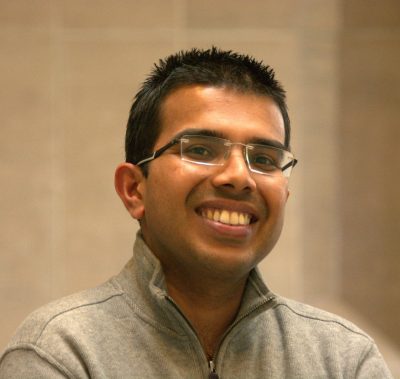Graduate Student Research Spotlight
The Department of Law and Legal Studies is proud to celebrate the journeys and successes of this years’ cohort of students graduating with a MA in Legal Studies or PhD in Legal Studies. Please find research highlights for some of our recent graduates below. We wish them all the best in their future endeavors. Congratulations class of 2021!

Kimiya Missaghi
Missaghi received a Research Impact Canada’s 2021 Engaged Scholarship Award (April 2021) for her thesis research and earned her Master of Arts in Legal Studies in November 2021. Her thesis entitled “Redefining Resiliency, Resistance, and Oppression: A Case Study of the Underground University in Iran” involved interviewing alumni of the Baha’í underground university in Iran who attended such an institution due to the marginalization and violence they faced because of their religious identity. Her thesis research examined resiliency as a socially embedded process, an institutional model of resiliency, and resiliency in the context of intergenerational oppression and violence.
Missaghi looks forward to building on her research in advancing discourses on resiliency within intergenerational and intersectional processes, both theoretically and practically. She continues to work under the supervision of her thesis advisor Dr. Melanie Adrian, Department of Law and Legal Studies, examining religious freedom and specifically Islamophobia among youth in Canada.
Congratulations Kimiya!

Tessa Penich
Penich graduated with a Masters of Arts in Legal Studies in November 2021. During her degree, she received the Joseph-Armand Bombardier Canada Graduate Scholarship – Master’s, Ontario Graduate Scholarship, and the Chet Mitchell Memorial Award in Law. Her thesis research, titled “Dystopian Panic, Transphobic Hatred, and Annihilation Anxiety: Critiquing Radical Feminist Opposition to Sex Robots,” examines the ideological assumptions that underpin anti-sex robot arguments. Focusing on the Campaign Against Sex Robots, she uses a feminist critical discourse analysis and theoretical frameworks including sex-positive feminism, queer theory, and posthumanism to examine how and why these radical feminists have latched on to sex robot technology as a site of danger and violence against women. Her analysis finds that while anti-sex robot feminists claim to oppose systemic violence, their arguments reveal a deep investment in violence, particularly against trans women, in the name of protecting a narrowly defined ideal of womanhood and intimacy.
Penich chose the MA Legal Studies program at Carleton specifically to work with her supervisor, Dr. Ummni Khan, Department of Law and Legal Studies. She is grateful for the mentorship and support she has received from her thesis committee.
After completing her degree, Penich returned to her home province of Alberta and is currently working for the Alberta Living Wage Network. She is pursuing a career in research and policy and is in the process of publishing her thesis findings. A PhD is likely in her future.
Congratulations Tessa!

Dr. Jay Ramasubramanyam
Dr. Ramasubramanyam is a global south migration researcher. He completed his doctoral dissertation under the guidance of Dr. Betina Appel Kuzmarov, Department of Law and Legal Studies, and earned a PhD in Legal Studies in November 2021. His project was a study of some of the gaps associated with the global refugee regime and the historical development of refugee protection India. The project identified India as an alternate location of practice with respect to refugee protection. His research also studied the notion of ‘resistance’ with respect to India’s relationship to international refugee law mechanisms by pitting it against the existing global narrative of ‘deviance’ that has often been attached to states that are non-signatories of the 1951 Convention Relating to the Status of Refugees and its 1967 Protocol. With the help of this study, his project presented first steps towards a new place for discourse on forced migration research.
Dr. Ramasubramanyam is an Assistant Professor at York University’s Law and Society Program. He is currently working towards turning his doctoral dissertation into a monograph, and two journal articles in the Journal of Immigrant and Refugees Studies, and the Journal of Refugee Studies.
Dr. Ramasubramanyam noted that “My time is Carleton was memorable for many reasons. I came to Canada as an international student. Beyond my academic work I took the opportunity to engage with campus life at large through student advocacy and community engagement.”
Congratulations Dr. Ramasubramanyam!

Dr. Marcus Sibley
Dr. Sibley earned a PhD in Legal Studies in November 2021. His doctoral research historicizes and critically examines the idea and concept of “rape culture,” how it shapes and is shaped by knowledge practices related to sexual violence, and its role in political discourse and legal governance. He maps how the concept is constituted through epistemologies of radical feminist theory, social psychology, and criminology as an empirical measure of attitudes and orientations towards sexual violence. Considering this important historical context, his work also explores the implementation of Bill 132—the Ontario government’s response to addressing rape culture on university campuses—through efforts to reform post-secondary institutions into quasi-legal assemblages that intersect with broader systems of power, governance, and criminalization.
Dr. Sibley’s research was supported by the critical training offered by his supervisors, Dr. Dawn Moore and Dr. Dale Spencer of the Department of Law and Legal Studies, who ensured that his theoretical and substantive contributions were both engaging and rigorous.
Dr. Sibley currently holds a position as a postdoctoral fellow in the Department of Criminology at Wilfrid Laurier University (Brantford). He is working on an important project titled “From NIMBY to neighbour: Brokering a dialogue about homelessness among people experiencing homelessness, law enforcement, and the community at large,” which investigates perceptions of homelessness by community stakeholders, police, and those with lived experience of housing precarity. He is excited to continue researching the governance of sexual violence, policing, and the criminalization of vulnerable and marginalized communities.
Congratulations Dr. Sibley!